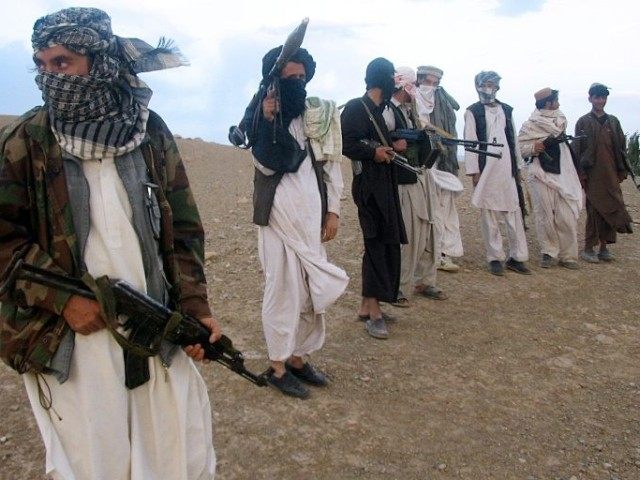Afghan Taliban jihadists, under their recently appointed emir Mullah Haibatullah Akhundzada, have reportedly vowed to continue fighting, maintaining their previous leader’s position against peace negotiations.
The “Taliban will never bow their heads and will not agree to peace talks,” declared the new leader in an audio message released by jihadi commanders days after the terrorist group’s previous leader, Mullah Akhtar Mansour, was killed by U.S. drone strike in Pakistan, reported Dawn.
“People thought we will lay down our arms after Mullah Mansour’s death, but we will continue fighting till the end,” added Mullah Akhundzada.
Nevertheless, Zabiullah Mujahid, identified as a spokesperson for the Taliban, denied that the jihadist group issued an audio recording from its new leader, according to Reuters.
The news outlet reported:
The official spokesman for the Afghan Taliban said on Wednesday that an audio tape purporting to be from newly named leader Haibatullah Akhundzada rejecting peace talks was not issued by him and was not from the new insurgent chief.
Two Taliban commanders had provided the audio to reporters late on Wednesday, saying it was an official statement. One of the commanders said he had received the recording directly from Zabihullah Mujahid, the official spokesman who earlier announced Akhundzada’s elevation.
Mujahid later issued an email from his official account denying the movement had issued an audio.
Reached by telephone, Mujahid said the Taliban were launching an investigation to learn who was distributing the recording.
Under Mullah Mansour, the Taliban refused to participate in peace talks with the Afghan government despite efforts to bring the terrorist group to the negotiating table by the United States, Afghanistan, China, and Pakistan, together known as the Quadrilateral Coordination Group (QCG).
Mansour argued that the Taliban was winning the war in Afghanistan so there was no need to engage in peace talks.
“The group saw a resurgence under the firebrand supremo with striking military victories, helping to cement his authority by burnishing his credentials as a commander,” reported Dawn, referring to Mullah Mansour’s leadership.
Afghan civilians and security forces suffered record casualties at the hands of the Taliban when Mansour served as the organization’s leader.
The appointment of Mullah Akhundzada “may serve as a uniting force within the Taliban movement,” reported The Long War Journal (LWJ).
Despite infighting, the terrorist group was able to flourish under Mansour’s leadership. A less fractured terrorist group could exacerbate deteriorating security conditions in Afghanistan.
BBC reported that instability perpetrated by the Taliban could mean more opium production in Afghanistan.
“Mansour may be dead — but, in the absence of other successful businesses, the opium trade has become an increasingly important enterprise in areas the government controls as well as Taliban-controlled areas,” noted the report.
“What that suggests is that, whoever is leader of the Taliban, Afghanistan is likely to continue to be the world center of opium production,” it continued. “Indeed, this year, Afghanistan is expected to produce more opium — and therefore heroin — than the world consumes. It isn’t hard to work out what that means: more and cheaper heroin coming to a street near you.”
Mullah Akhundzada was appointed as the Taliban’s third leader by the group’s “shura,” or leadership council, less than a year after his predecessor, the late Akhtar Mansour, succeeded Mohammad Omar, founder and longtime leader of the jihadist group whose death in 2013 was kept secret for years.
The new Taliban chief has been described as an extremist Islamic cleric, rather than a fighter.

COMMENTS
Please let us know if you're having issues with commenting.